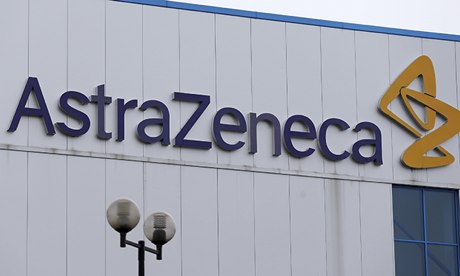AstraZeneca US drug trial queried

AstraZeneca is being investigated by US authorities over a clinical trial that was used to win marketing approval for its heart drug Brilinta, casting fresh doubts over the medicine.
Brilinta sales have been a disappointment since its launch two years ago, although AstraZeneca has recently stepped up marketing efforts and hopes that further clinical tests will underscore its value in preventing heart attacks.
The British drugmaker said on Thursday it received a civil investigative demand from the US department of justice, seeking documents and information regarding the Plato (platelet inhibition and patient outcomes) study.
AstraZeneca plans to co-operate with the DOJ and its chief executive, Pascal Soriot, said he was "very confident" in the findings of the trial. "It was guided by a strong academic group who oversaw the trial and its conduct," he told reporters after announcing third-quarter results.
AstraZeneca did not disclose the exact nature of the investigation and DOJ spokesman Peter Carr in Washington said he had no immediate comment on the case.
The results of the 18,000-patient trial were first reported in 2009 and went on to form the basis of successful new drug applications in the US, Europe and other markets. Brilinta was launched in 2011.
Aspects of the study, which relied heavily on patients recruited in eastern Europe, have been criticised by medical experts. Poland and Hungary together accounted for 21% of the subjects studied – more than double the US and Canada combined.
James DiNicolantonio of Ithaca New York and Ales Tomek of Charles University in Prague raised several questions about the conduct of the study in a recent paper in the International Journal of Cardiology.
In particular, their analysis found that patients in the Plato trial who were monitored by AstraZeneca were reported as having more beneficial effects from taking Brilinta than those monitored by an independent clinical research organisation.
Those conclusions, however, have been strongly disputed by Lars Wallentin of Uppsala clinical research center in Sweden, the principal investigator on Plato.Brilinta is a key product for AstraZeneca but its progress to date has been slow, with sales in the third quarter edging up to just $75m (£47m) from $65m in the three months to end-June – a long way from the multibillion-dollar sales potential that analysts once predicted.
Among the challenges it faces is the fact that US doctors tend to use high-dose aspirin for cardiovascular patients, and clinical trials suggest AstraZeneca's new drug does not work as well in this setting.
AstraZeneca hopes that a new clinical study called Pegasus will put to rest any uncertainties about the effectiveness of Brilinta and also increase uptake of the medicine. Results are expected in 2014.
In addition to the DOJ inquiry into Brilinta, AstraZeneca also disclosed it had received a subpoena from the US Attorney's Office in Boston, seeking documents and information related to the safety of its antipsychotic drug Seroquel.
The news came as AstraZeneca promoted Marc Dunoyer to chief financial officer, plugging a gap in the management team as it grapples with falling sales and profits.
Dunoyer, 61, who joined from rival GlaxoSmithKline in June, will replace well-respected finance chief Simon Lowth, whose departure to join BG Group had been announced.
Hit by generic competition to key drugs, sales and profits at AstraZeneca continued to slide in the third quarter, underscoring the challenge facing Soriot, who has been in the job for just over a year. Lowth has been viewed as a steady hand on AstraZeneca's finances, and the appointment of Dunoyer, who lacks recent direct CFO responsibility, may concern some investors. Soriot and Dunoyer have their work cut out to turn around AstraZeneca after years of failure to come up with new drugs to replace those reaching the end of their patent life.
Improving AstraZeneca's record in drug research is Soriot's top priority, but he told Reuters in June that turning around the company would take three to four years.
It will also require investment in the science behind new medicines and AstraZeneca said it expected to spend more, with 2013 spending increasing at the upper end of its prior guidance range of a low-to-mid single-digit percentage rise on 2012.
Mark Clark of Deutsche Bank said higher operating costs suggested there would be "minor" downgrades in earnings forecasts.
Sales in the quarter slid by 6% to $6.25bn, weighed down by the loss of patent protection on several drugs – including, in some markets, its top-selling cholesterol fighter Crestor.
"Core" operating profit was $2.03bn.
Growth in drug sales in China, where destocking and an anti-corruption drive disrupted business, slowed to 13% from 21% in the second quarter. But AstraZeneca fared a lot better than GlaxoSmithKline, the company at the centre of the scandal, whose China sales crashed 61% percent in the third quarter.
http://www.theguardian.com/business/2013/oct/31/astrazeneca-us-drug-trial?
No comments:
Post a Comment